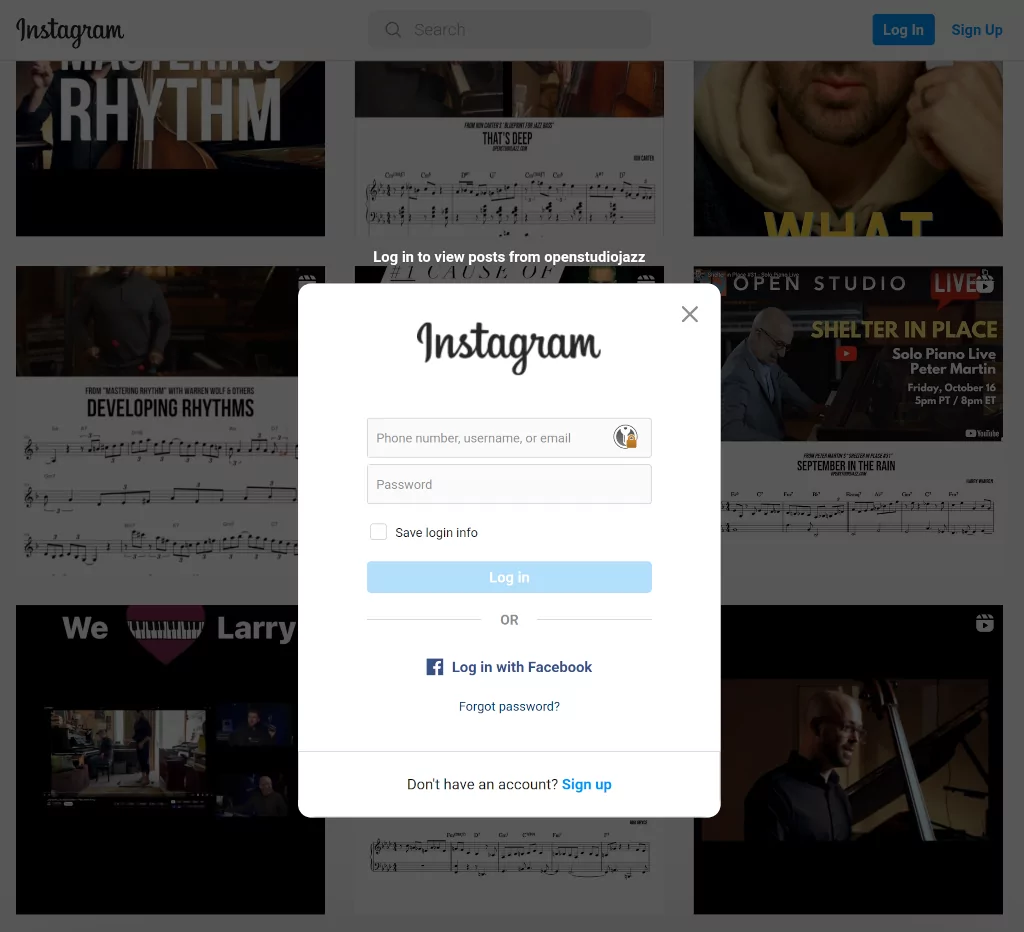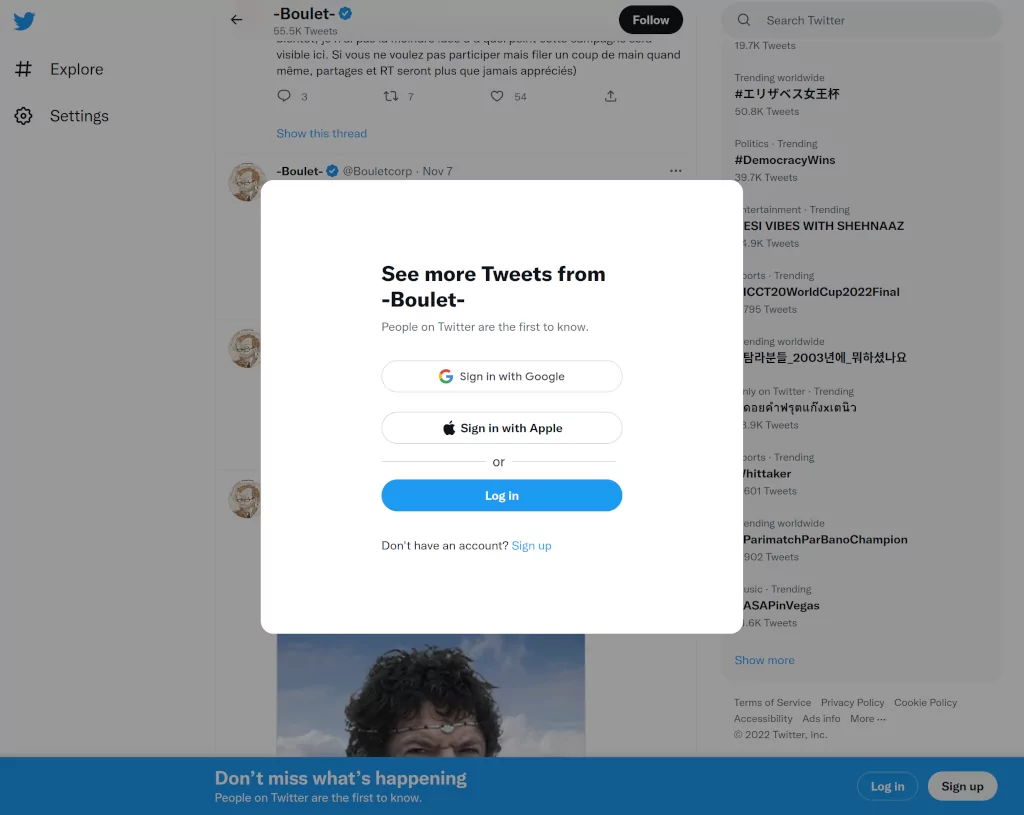The other day, I received an invitation to attend an event held in a bar in Taipei, where I live. To get more information such as the directions, a link to their Facebook page was provided. When I clicked on the link, I was redirected to a Facebook login page. I could not access any content without a Facebook account. I did not attend the event.
From time to time, I hear about interesting content being posted on Instagram. When I go check the user's page and try to open an image or a video, here is what I see:

Similarly, Twitter is apparently the place to be when you want to be updated about stuff. Here is what I see when I want to check the latest news from a given user and start to scroll down the page:

According to statista, in 2022:
- Facebook has 2.910 billion monthly active users
- Instagram has 1.478 billion monthly active users
- Twitter has 436 million monthly active users
According to Wikipedia, the World has a population of around 7.9 billion.
So, when I say "here is what I see", I should rather say "here is what most people in the World see".
This is a good reminder that all of these platforms are only closed walled gardens, and their main goal is to attract as many users as possible, then to extract as much data as possible to sell them for profit. The hardest part for them is to attract enough people and businesses to reach critical mass, after which other people feel obliged to sign up to these social networks for fear of missing out. This gets the ball rolling and the number of users raising.
Most of these social networks require a working phone number and/or a piece of official identification information to sign up for an account. This is pure gold for the companies running them.
And don't get me wrong. Other famous social networks might not require people to sign up for an account to access their content (yet), but they will still find ways to scrap as much personal data as they can (hello, Youtube!).
“But you can workaround the login screen!”
Sure, some motivated people put together alternatives to access the content from these websites, but this is just a hacky solution to a real problem. No one should have to jump through hoops to access content created by their friends.
Dear people, dear businesses: please stop using these social networks.
The Web has been built as a decentralized network where anyone can host their own website and share it with the World. It was quite an experience to visit homemade websites back in the mid 90s; it was great to read so many bloggers in the early 2000s.
Sure, it might take a little bit more skills to setup a website on your own than to click the "Yes I agree that you sell all of my data and my soul to any of your sketchy commercial partners" button, but you will actually learn something in the process (think about technical emancipation). If you think you cannot do it, and if you really have no one around who could help you with this, then there might be solutions to help you host your website. The French collective CHATONS (“kittens”), for instance, “aims to bring together structures offering free, ethical and decentralized online services in order to allow users to quickly find alternatives that respect their data and privacy to the services offered by GAFAM (Google, Apple, Facebook, Amazon, Microsoft).”
Finally, other social networks such as Mastodon provide a viable alternative if you cannot (or don't want to) host or administer your own website.